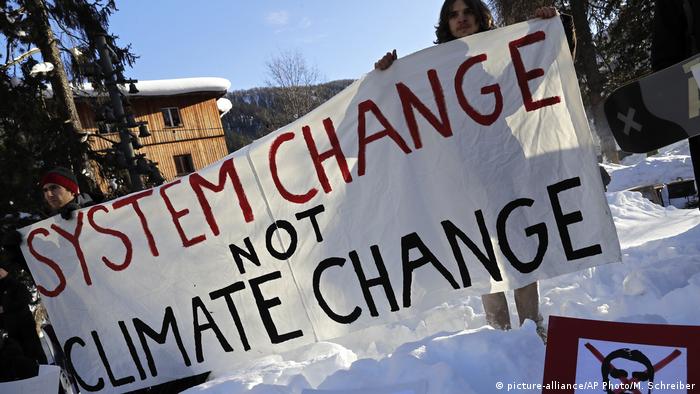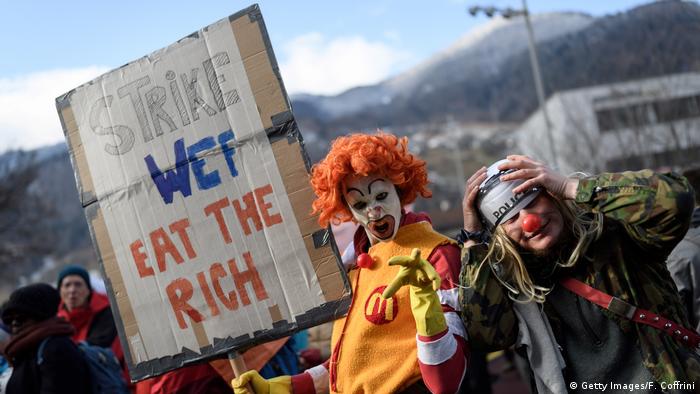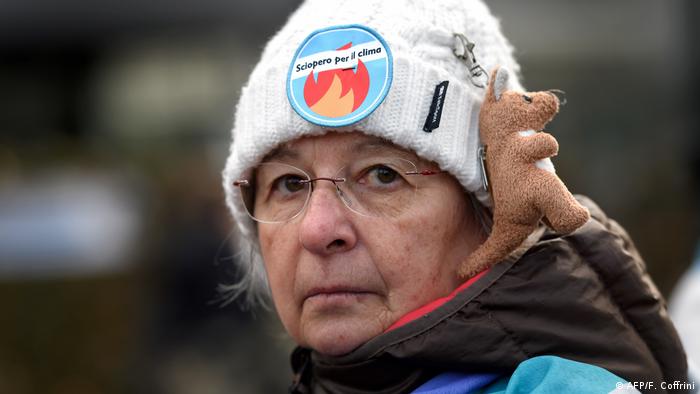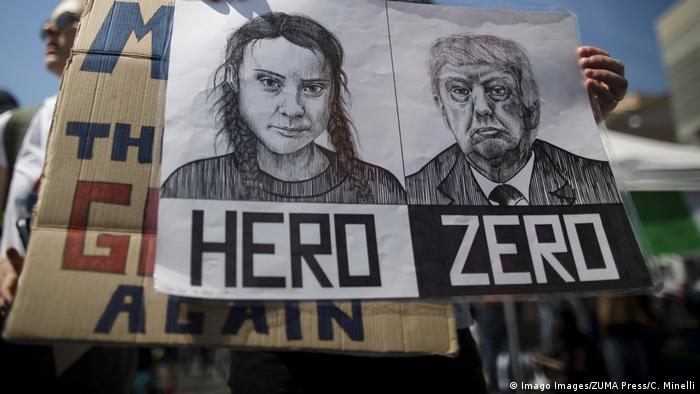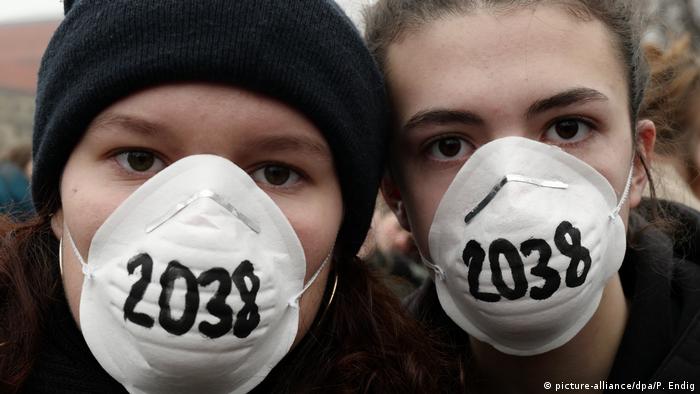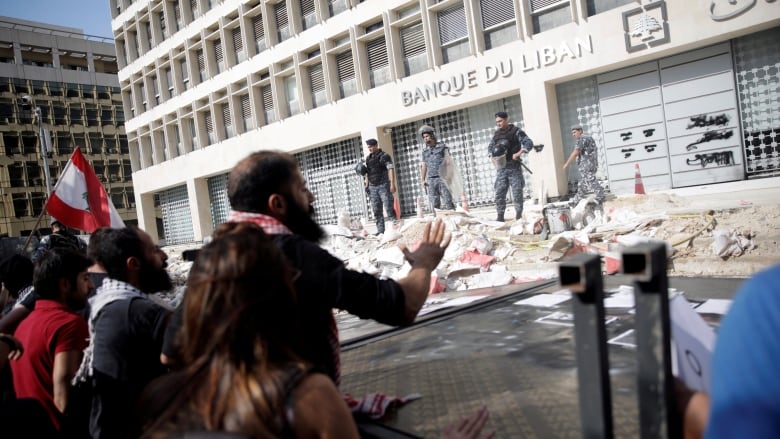Hambach Forest: Germany's sluggish coal phaseout sparks anger
Germany plans to phase out coal power by 2038. The embattled Hambach Forest is now protected, but some villages will still have to make way for the last open-pit mines. Activists and local residents are appalled.

It's a sunny, mild day in January, and the birds are singing as if spring has already arrived. Wild boars are roaming through Hambach Forest — the ancient woodland that has now been protected from the ravages of coal mining by the German government. The decision was good news for environmental activists and nearby villagers.
"You get a lot of strength from this powerful climate protection movement. We managed to save 'Hambi' [Hambach Forest — Editor's note], and that's a major achievement for the people who occupied the forest," said Kathrin Henneberger, a spokesperson for the Ende Gelände protest group. "This will give us new strength, which we will need for the ongoing struggle against the climate crisis."
A symbol for the climate movement
Hambach Forest, on the edge of one of Europe's largest open-pit coal mines, has become an important symbol for Europe's climate protection movement. The power plants linked to these massive mines, near the western city of Cologne, release more CO2 into the atmosphere than anywhere else in the European Union.
In 2012, climate activists began building treehouses in Hambach Forest to protest its imminent destruction to make way for the expansion of the nearby mines. Over the years, protests against coal plant operator RWE and the federal and state energy policies became increasingly vocal — and mainstream. The protests reached a high point in the fall of 2018, when tens of thousands of people occupied the forest to demonstrate against coal-powered electricity and called for Germany's compliance with the Paris climate goals.

The village of Manheim has already been emptied out to make way for more mining
Anger, disappointment in nearby villages
Britta Kox is a resident of the village of Berverath, just a few kilometers away from the edge of the Garzweiler open-pit mine. Many nearby villages have been forced to make way for the coal excavators over the last few years. The German government has decided that another six villages must still be razed before coal mining comes to an end in the area. Kox's family will have to move and leave her grandmother's house behind. The news has left her shaken, and disappointed with policymakers.
"I'm stunned, and angry. It's a catastrophic for us villagers. The German government is ruining our climate, and [North Rhine-Westphalia] State Premier [Armin] Laschet wants to destroy our villages. But we live here, and we want to stay," Kox told DW.
"The legislation was negotiated with energy firms at the national level. We, the people who will be affected, were once again completely ignored."
An assessment by the German Institute for Economic Research, said Kox, "shows that the villages can remain, the local forest as well, and that there is already enough coal here in the open-pit mines to last for years, well after 2038." She's relying on the support of the Hambach Forest activists for the preservation of her village, and others nearby. "We will stay, and we will not be driven from our homes, not for love or money," said Kox.
Read more: What Germany can learn from the Netherlands
New opportunities for Hambach Forest
Other villages such as Manheim and Morschenich, both located on the fringes of the open-pit mine, have already been boarded up and in part demolished, although a handful of people still live there. With this week's decision on the future of coal, it's unlikely the area will ever see any coal mining — but RWE, which bought out the homeowners, has already made the area nearly uninhabitable, a "fatal" move, said Dirk Jansen of the environmental organization BUND. "It would be cynical to continue this work of destruction, only to end up building superfluous industrial areas here," he said.
But according to Jansen, there's still hope for Hambach Forest, even if only some 550 hectares (2.1 square miles) of the original 4,000 hectares has been spared. "Every square meter deserves to be preserved, because this is a type of forest which is under explicit protection from the EU," he said.
After 150 years of destruction linked to coal mining, Jansen believes Hambach Forest could now become the starting point for a green redevelopment of the Rhine coal mining region. "Groundwater was pumped out to enable coal extraction, and tree roots are dry," he said. However, the soil still has a high capacity to store water, and so the forest has the potential to "store rainwater."
In future, said Jansen, the region would have to be less focused on economic development and more concerned with the preservation of nature and ecological valorization. There was potential for the development of renewable energies, as well as sustainable, ecological agriculture.
In order for Germany to reach its Paris climate protection goals, BUND has said the coal phaseout would have to be completed by 2030, at the latest. But the organization believes jobs in the coal industry could still be preserved for a number of years, in a socially responsible way.
RWE losing out?
The energy giant has been critical of the government's decision to speed up the exit from coal, with Chief Executive Rolf Martin Schmitz saying it would have severe consequences for both employees and the company itself.
"We had permission to extract more than 2.1 billion tons of coal reserves," he said. "More than 1.1 billion tons of those reserves will now remain buried."
"RWE's power plants were built in the 1960s. They're therefore outdated and written off economically by now," said Oliver Krischer, parliamentary leader of the environmentalist Green party. Today, RWE earns around three times as much with renewables as it does with gas and coal power generation, he added.
DW RECOMMENDS
AUDIOS AND VIDEOS ON THE TOPIC
- Date 19.01.2020


